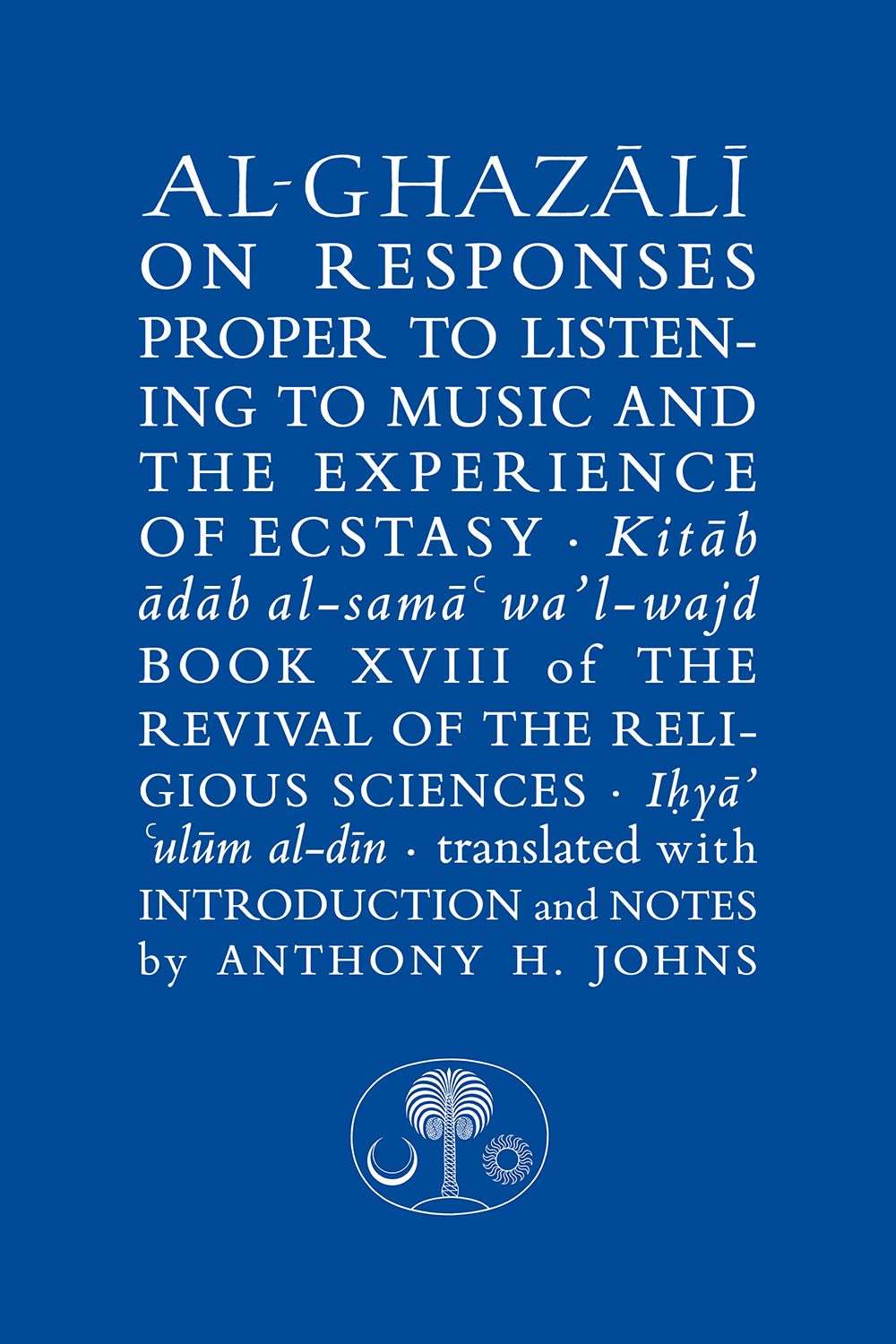About The Book
Responses Proper to Listening to Music and the Experience of Ecstasy is the eighteen chapter of the Revival of the Religious Sciences (Ihya’ ‘Ulum al-Din), a monumental work of classical Islam written by the renowned theologian-mystic Abu Hamid al-Ghazali (d. 1111). This chapter of the Revival deals with the controversial topic of music. In the Islamic legal tradition, there is disagreement as to whether or not performing and listening to music is lawful, even more, whether music might be used as a path to ecstasy.
Basing himself on the Qur’an, hadith, the first generations of Muslims and the mystical tradition, Ghazali presents the arguments both for and against listening to music. Ghazali’s own position is that music in itself is permissible, though under certain circumstances it can be unlawful or undesirable. Ghazali emphasises awareness of the omnipresence of God in creation and the importance of using the mind, hearing and sight to bring one closer to God. In Responses Proper to Listening to Music and the Experience of Ecstasy he gives lyrical expression to his love of poetry and music, and their legitimate place not only in human celebrations, but in divine worship and as aids on the path to gnosis and ecstasy. All such responses he sees exemplified in the life of the Prophet with his family.
This volume also includes a translation of Imam Ghazali’s own Introduction to the Revival of the Religious Sciences which gives the reasons that caused him to write the work, the structure of the whole of the Revival and places each of the chapters in the context of the others.
About The Author
Imam Abu Hamid Muhammad Al-Ghazali was born in 450 AH (1058 A.D) in the Iranian town of Tus, studied Islamic law and theology at the Seljuq College in Nishapur, and became a distinguished professor at the famous Nizamiyya University in Baghdad.
Despite his glittering success, he was inwardly dissatisfied, so he abandoned his career for the life of hardship, abstinence and devotion to worship. During ten years of wandering, he experienced a spiritual transformation, in which the Truth came to him at last, as something received rather than acquired.
Blessed with an inner certainty, he then applied his outstanding faculties and vast learning to the task of revitalizing the whole Islamic tradition. Through his direct personal contacts, and through his many writings, he showed how every element in that tradition could and should be turned to its true purpose.
Imam al-Ghazzali was fondly referred to as the "Hujjat-ul-lslam", Proof of Islam, he is honoured as a scholar and a saint by learned men all over the world and is generally acclaimed as the most influential thinker of the Classical period of Islam.
He passed away in 505 AH (1111 A.D).
About The Translator
Anthony H. Johns, Emeritus Professor at the Australian National University in Canberra, held a chair in the Faculty of Asian Studies from 1963–1993, and is a specialist in Sufism in the Malay world, Islamic history and institutions, and the foundation texts of Islam.
Currently he is Visiting Fellow in the Department of Political and Social Change of the College of Asia and the Pacific at the Australian National University. In the course of his distinguished career, Prof Johns has published significantly on Qur’an and Qur’anic exegesis, and now serves as a member of the editorial board for Journal of Qur’anic Studies.


